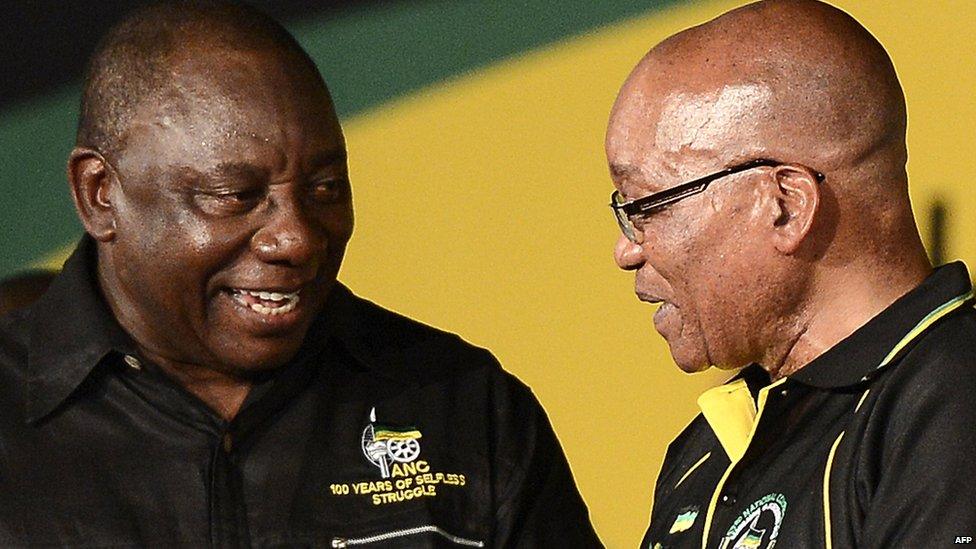South Africa President Jacob Zuma's sacking blunder
- Published
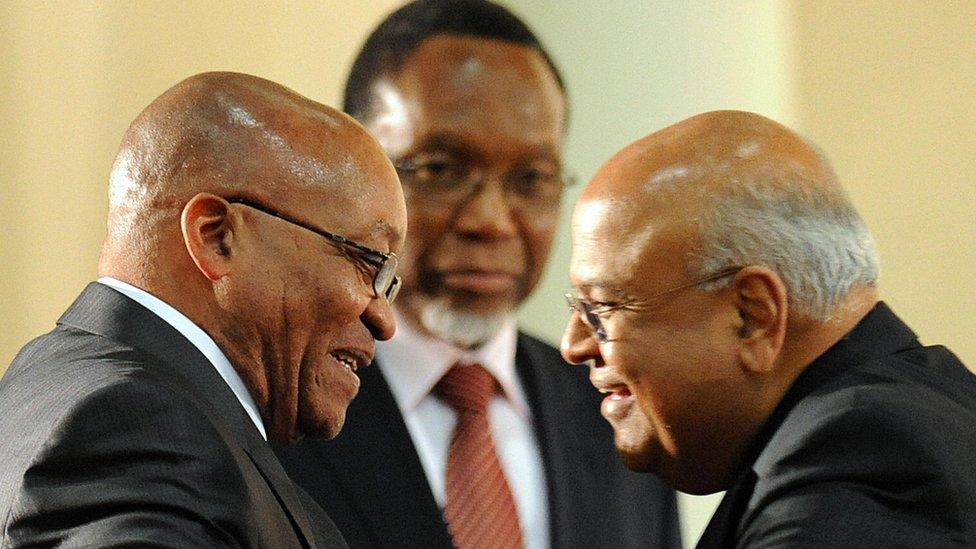
President Jacob Zuma (left) first appointed Pravin Gordhan (right) as finance minister in 2009
To lose one finance minister may be regarded as a misfortune; to lose two looks like carelessness, and President Jacob Zuma's decision to get rid of two finance ministers in less than a week has been a colossal blunder.
He sacked the respected Nhlanhla Nene in a surprise move on Wednesday evening and replaced him with the little-known David van Rooyen.
Not only was this seen as a blunder by opposition parties, who called for his resignation, but also by the general public and the financial markets
The president acknowledged his initial mistake, hence the change of mind and the appointment of the experienced Pravin Gordhan.
But why in the first place did the president fire the seemingly competent Nhlanhla Nene?
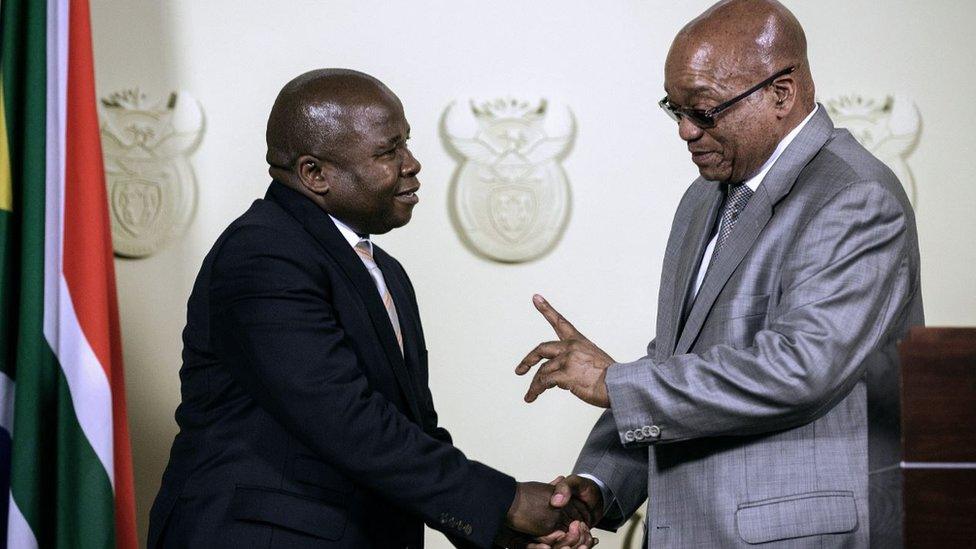
David van Rooyen (left) served as finance minister for two working days
The presidency issued a statement saying that Mr Nene was being moved because he was being put forward as a candidate to run the newly established development bank for the Brics nations - Brazil, Russia, India, China and South Africa.
But many believe that Mr Nene was sacked for being critical of the way state companies were run - in particular his apparent refusal to bail out the national carrier South African Airways, which is run by Dudu Myeni a close associate of President Zuma.
Mr Zuma was forced to issue a statement over the weekend denying that he was in anyway romantically involved with Ms Myeni, who is also chairman of his charitable foundation.
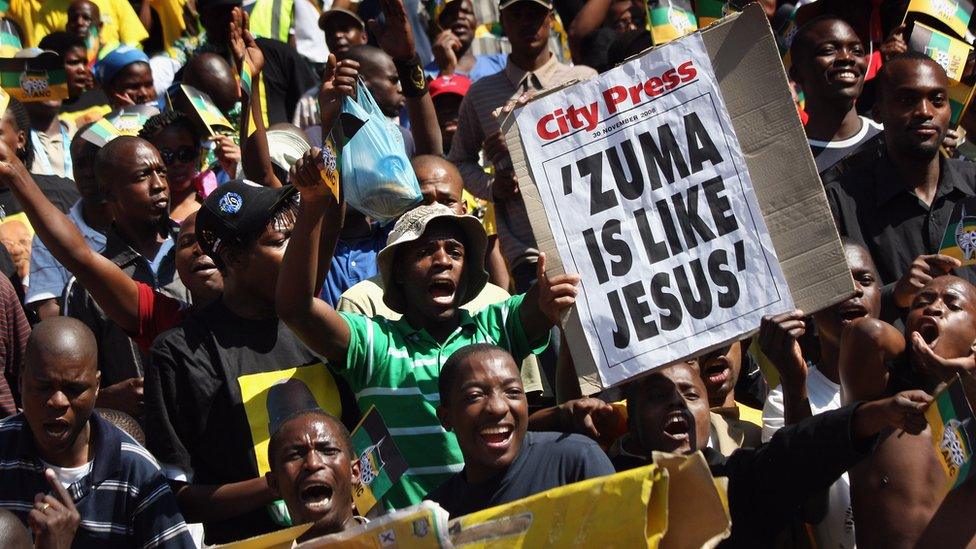
President Zuma has been cast as a man of the people, but that image has been tarnished
This can all be seen as a mistake by an individual - the president - but it is also symptomatic of an ANC that is increasingly lethargic.
The question is: "What is happening with the governing African National Congress, once led by giants like Nelson Mandela, Oliver Tambo and Walter Sisulu?"
The ANC leadership was not consulted over the recent sackings and seemed to be hearing about the dramatic appointments at the same time as the rest of us.
There is no doubt that the continent's oldest liberation movement is in disarray.
Its president has been described by observers as "a wrecking ball".
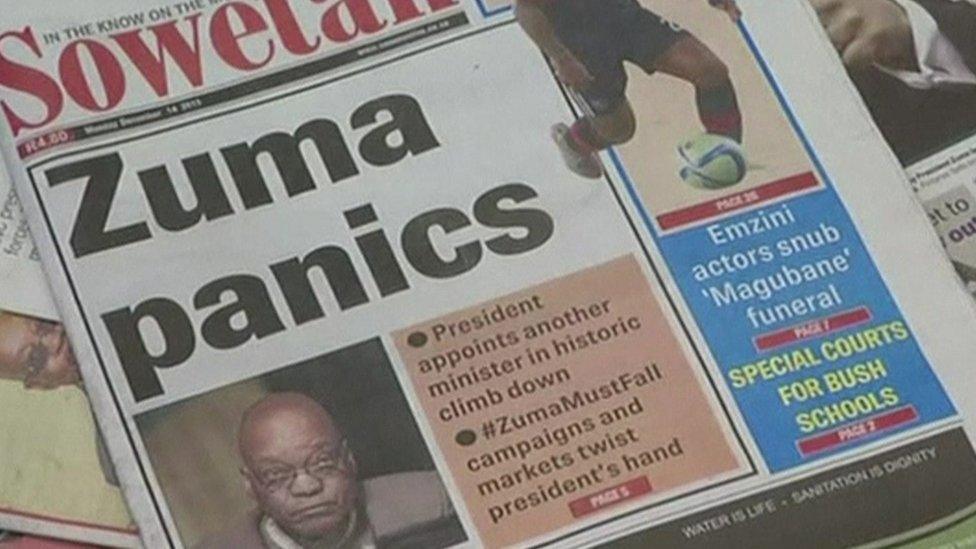
The newspapers have been very critical of President Jacob Zuma's actions
We have always been led to believe that the ANC works as a collective, and the party is known to have what it calls a deployments committee.
This is a group of people who sit down and carefully select members of the organisation who have the skills to deliver on specific tasks that will ultimately give ordinary South Africans a better life.
Granted, ministers are appointed to cabinet by the president alone but there is an accepted understanding that the deployments committee would have put names forward for the president to consider.
There is no sign that this is what happened this time around.
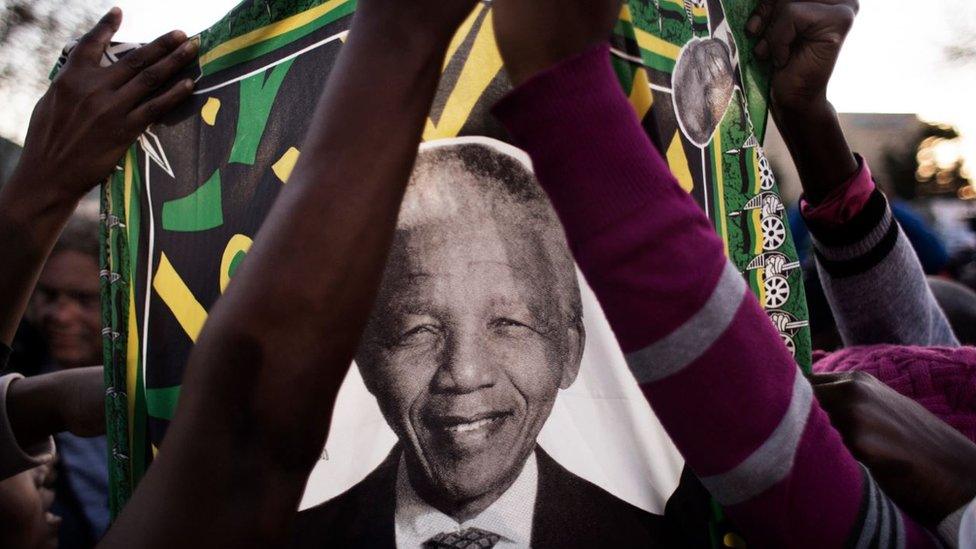
Many are wondering what has happened to the party once led by Nelson Mandela
Barbara Hogan, a former cabinet minister and anti-apartheid stalwart, openly criticised the president's decision to fire Mr Nene.
She said if the ANC does "not want to recall [Mr Zuma], then it must hold him accountable".
Ms Hogan, whose spouse Ahmed Kathrada was in prison with Nelson Mandela for 27 years, also said: "This is the final straw. If the president is now intent on dismantling the treasury, anyone who has been in government knows that a lot of government revolves around a treasury."
And she was not alone.
Another senior ANC member Mavuso Msimang was a signatory to a scathing open letter written to Mr Zuma about the latest fiasco.
It said: "We write to you with the sole intention of making you aware that we are gravely concerned about the manner in which you are governing us. We find many of your decisions detrimental to the interests of the people."
And it concluded: "We do not understand your authority to appoint or dismiss ministers as a licence for you to act against national interests."
Sympathy for the president
In a comment more sympathetic to the president, Mzwanele Manyi, leader of the ANC-aligned Progressive Professionals Forum, said: "Clearly our president is not an arrogant man. He is a listening and a receptive person."
And the ANC's Zizi Kodwa echoed Mr Manyi's views: "President Zuma's decision to appoint Comrade Gordhan is an explicit demonstration of a responsive and accountable government."
This row has also got caught up in the battle to see who will lead the ANC from 2017, and lines have already been drawn based on which candidate people support.
The race is between the former wife of President Zuma, Nkosazana Dlamini-Zuma, who is currently African Union commission chairperson, and deputy president Cyril Ramaphosa.
These divisions are pitting brother against brother, just as they did in 2007, when Mr Zuma ousted then President Thabo Mbeki as ANC leader.
There are many who believe that part of the reason why the ANC seems to have its eyes off the ball, not just in the appointment of finance ministers but in the running of the country as well, is because of the race which has already begun even before the starting gun has been fired.
President Zuma's reputation will emerge weaker from this - though he is likely to survive despite the #ZumaMustStillFall hashtag, as the vast majority of South Africans are very loyal to the party, if not the individual in the shape of the president.
Unless the party decides to recall him first.
- Published9 October 2015
